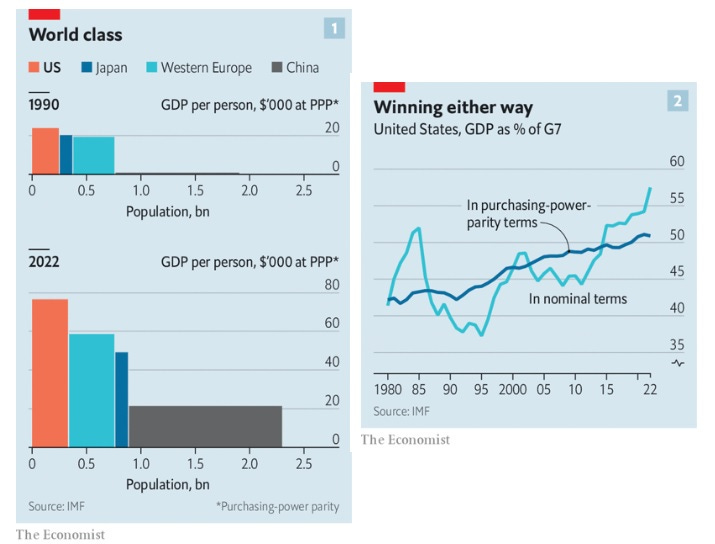↗ America is great, but it can be better
Obsessing only about our shortcomings could mean undermining what we do best
“We are a better society with a lot of room to go — but we are a better society.”- Warren Buffett in 2020
The Essay
↗ America is great, but it can be better
Look, America is no utopia, but even during the worst of the pandemic or during the Jan. 6, 2021 attack on the US Capitol, hyperbolic claims that the United States was a “failed state” were utterly absurd. They remind me of somewhat less outrageous, yet still incorrect, arguments that American living standards have gone nowhere for a half century. There’s a lot of truth in this brief tweet:
There’s a welcome reminder of that expressed reality in the new issue of The Economist, which offers a needed counter to the endless droning of the declinists:
[Based on exchange rates], America’s $25.5trn in GDP last year represented 25% of the world’s total—almost the same share as it had in 1990. … More astonishing, and less appreciated, than its ability to hold its place in the world as a whole is the extent to which America has extended its dominance over its developed peers. In 1990 America accounted for 40% of the nominal GDP of the G7. Today it accounts for 58% . … America’s outperformance has translated into wealth for its people. Income per person in America was 24% higher than in western Europe in 1990 in PPP terms; today it is about 30% higher. It was 17% higher than in Japan in 1990; today it is 54% higher. In PPP terms the only countries with higher per-person income figures are small petrostates like Qatar and financial hubs such as Luxembourg. A lot of that income growth was at the top end of the scale; the ultra rich have indeed done ultra well. But most other Americans have done pretty well, too. Median wages have grown almost as much as mean wages. A trucker in Oklahoma can earn more than a doctor in Portugal. The consumption gap is even starker. Britons, some of Europe’s best-off inhabitants, spent 80% as much as Americans in 1990. By 2021 that was down to 69%.
So how do the above observations and statistics sync with the claim made by this newsletter (and by many others) that America remains in a Great or Long Stagnation? Indeed, am I also, de facto, a declinist and pessimist with all my talk about stagnation and the need for acceleration?
Keep reading with a 7-day free trial
Subscribe to Faster, Please! to keep reading this post and get 7 days of free access to the full post archives.






